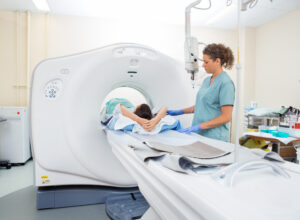Heart valves play a crucial role in keeping blood flowing smoothly through your heart’s chambers and into your lungs and body. When these valves don’t work properly, it can affect your heart’s efficiency and lead to symptoms or complications. At Apollo Cardiology, we often see patients referred after a heart murmur is detected or when valve disease is suspected. Understanding when to worry—and when it’s not urgent—is key to managing your heart health.
A heart murmur is an unusual sound heard during a heartbeat, often described as a whooshing or swishing noise. Murmurs are caused by turbulent blood flow, which can result from valve abnormalities such as narrowing (stenosis) or leakage (regurgitation). However, not all murmurs indicate heart disease; some are “innocent” or harmless and don’t require treatment or further testing.
Common valve problems include aortic stenosis, mitral regurgitation, and mitral valve prolapse. Aortic stenosis, where the valve between the heart and aorta narrows, can cause breathlessness, chest pain, and fainting if severe. Mitral regurgitation involves leakage of the valve between the left atrium and ventricle, potentially causing fatigue and breathlessness. Valve prolapse is usually less serious but may cause palpitations.
Your cardiologist will perform a thorough clinical assessment and order an echocardiogram to visualise the valves and measure the severity of any dysfunction. This ultrasound test is essential for diagnosing valve disease, determining treatment needs, and monitoring progression. Mild valve problems may only require regular check-ups, while more severe cases might need medication or surgery.
Regular monitoring is important because valve disease can worsen gradually. Early intervention, such as valve repair or replacement, often leads to better outcomes and improved quality of life. Symptoms that warrant prompt cardiology review include worsening breathlessness, chest pain, dizziness, or swelling in the legs.
When to Seek Medical Advice for a Heart Murmur or Valve Issue
- New or worsening breathlessness or fatigue
- Chest pain or tightness
- Dizziness or fainting episodes
- Swelling in legs or abdomen
- Palpitations or irregular heartbeats
FAQs
Q: What causes heart murmurs?
A: They can be caused by valve abnormalities, increased blood flow during exercise or pregnancy, or be completely harmless (innocent murmurs).
Q: How is valve disease treated?
A: Treatment ranges from monitoring and medication to surgical repair or valve replacement, depending on severity.
Q: Can valve problems cause a heart attack?
A: Valve disease doesn’t directly cause heart attacks but can increase the strain on the heart and lead to other complications if untreated.
Q: Is valve surgery risky?
A: Advances in surgery and minimally invasive procedures have made valve repair and replacement much safer with excellent outcomes.
Key Takeaways
- Heart murmurs are common and not always serious.
- Valve problems can affect heart function and require evaluation by echocardiogram.
- Symptoms like breathlessness, chest pain, or fainting warrant prompt cardiology review.
- Early diagnosis and treatment improve outcomes and quality of life.
- Regular monitoring is essential for managing valve disease.
If you or your GP have detected a heart murmur or you experience symptoms suggestive of valve disease, request an appointment with Apollo Cardiology for expert assessment and care.
Disclaimer
The information provided on this blog is for general educational purposes only and is not intended as a substitute for professional medical advice, diagnosis, or treatment. Always seek the guidance of your doctor or other qualified healthcare provider with any questions you may have regarding your health or a medical condition. Do not disregard medical advice or delay in seeking it because of something you have read on this website.




